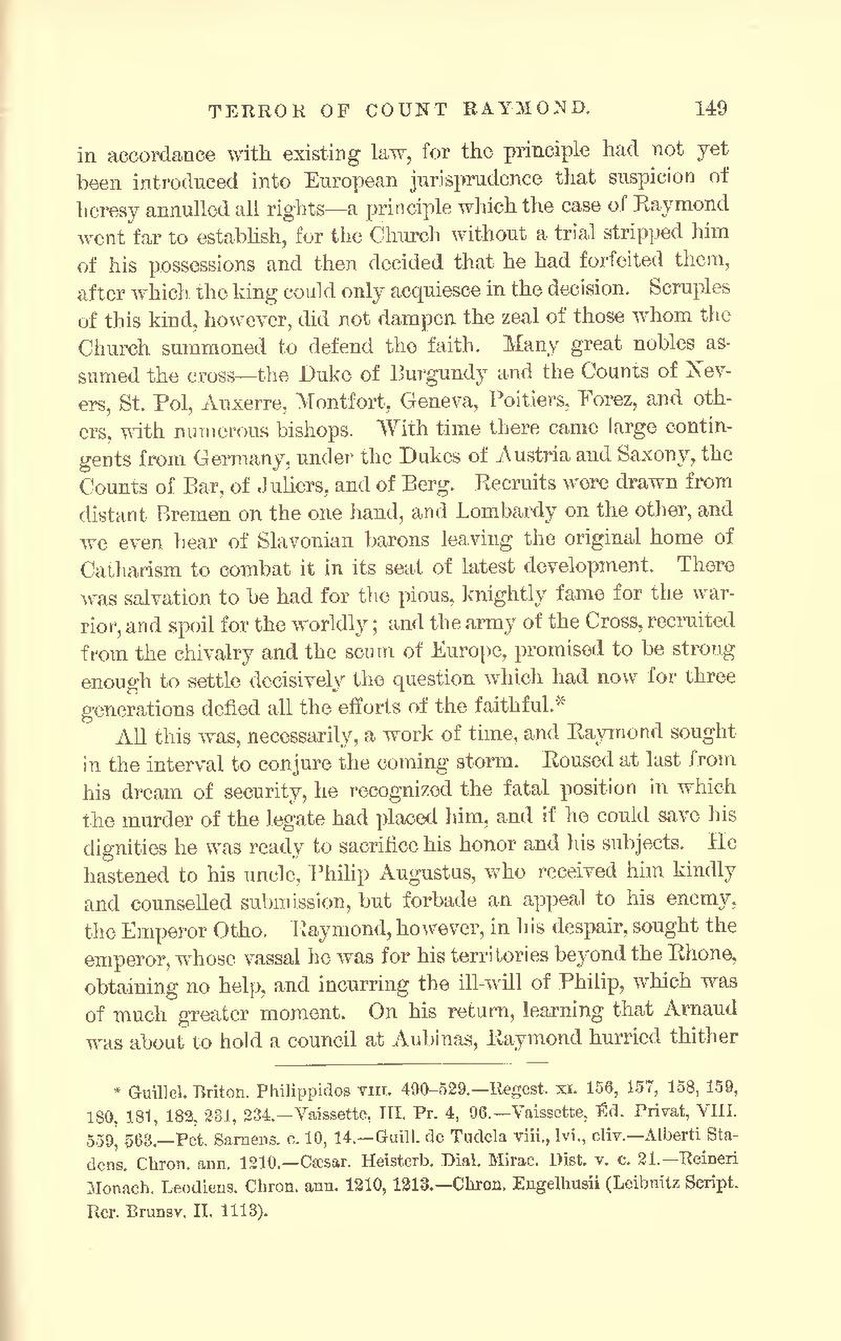in accordance with existing law, for the principle had not yet
been introduced into European jurisprudence that suspicion of
heresy annulled all rights — a principle which the case of Raymond
went far to establish, for the Church without a trial stripped him
of his possessions and then decided that he had forfeited them,
after which the king could only acquiesce in the decision. Scruples
of this kind, however, did not dampen the zeal of those whom the
Church summoned to defend the faith. Many great nobles assumed the cross — the Duke of Burgundy and the Counts of Severs, St. Pol, Auxerre, Montfort, Geneva, Poitiers, Forez, and others, with numerous bishops. With time there came large contingents from Germany, under the Dukes of Austria and Saxony, the Counts of Bar, of Juliers, and of Berg. Recruits were drawn from distant Bremen on the one hand, and Lombardy on the other, and we even hear of Slavonian barons leaving the original home of Catharism to combat it in its seat of latest development. There was salvation to be had for the pious, knightly fame for the warrior, and spoil for the worldly ; and the army of the Cross, recruited from the chivalry and the scum of Europe, promised to be strong enough to settle decisively the question which had now for three generations defied all the efforts of the faithful.[1]
All this was, necessarily, a work of time, and Raymond sought in the interval to conjure the coming storm. Roused at last from his dream of security, he recognized the fatal position in which the murder of the legate had placed him, and if he could save his dignities he was ready to sacrifice his honor and his subjects. He hastened to his uncle, Philip Augustus, who received him kindly and counselled submission, but forbade an appeal to his enemy, the Emperor Otho. Raymond, however, in his despair, sought the emperor, whose vassal he was for his territories beyond the Rhone, obtaining no help, and incurring the ill-will of Philip, which was of much greater moment. On his return, learning that Arnaud was about to hold a council at Aubinas, Raymond hurried thither
- ↑ Guillel. Briton. Philippidos viii. 490-529.— Regest. xi. 156, 157, 158, 159, 180, 181, 182, 231, 234.— Vaissette, III. Pr. 4, 96.— Vaissette, Éd. Privat, VIII. 559, 563.— Pet. Sarnens. c. 10, 14.— Guill. de Tudela viii., lvi., cliv.— Alberti Stadens. Chron. ann. 1210. — Csesar. Heisterb. Dial. Mirac. Dist. v, c. 21. — Reineri Monach. Leodiens. Chron. ann. 1210, 1213.— Chron. Engelhusii (Leibnitz Script. Rer. Brunsv. II. 1113).
